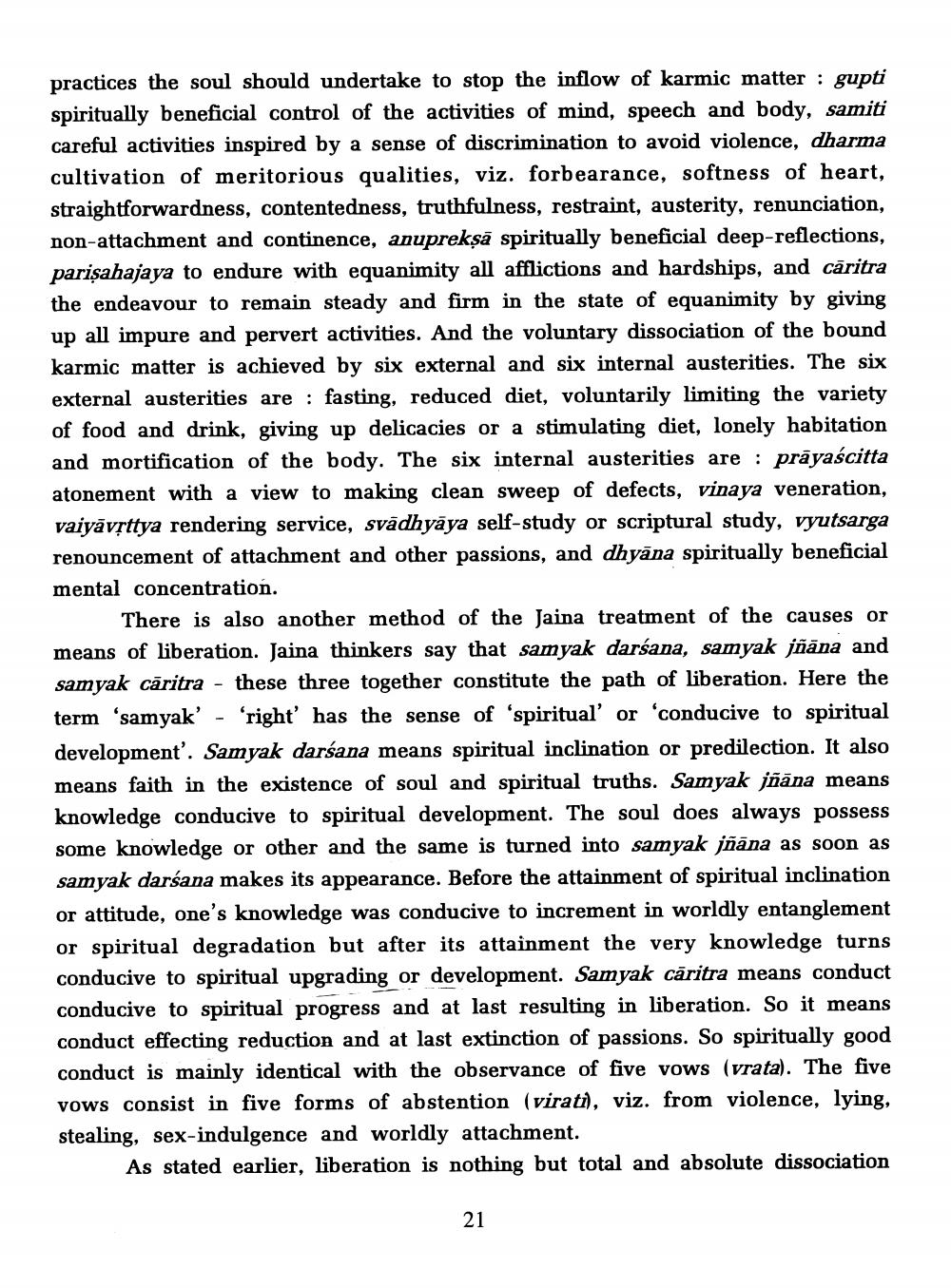________________
practices the soul should undertake to stop the inflow of karmic matter : gupti spiritually beneficial control of the activities of mind, speech and body, samiti careful activities inspired by a sense of discrimination to avoid violence, dharma cultivation of meritorious qualities, viz. forbearance, softness of heart, straightforwardness, contentedness, truthfulness, restraint, austerity, renunciation, non-attachment and continence, anuprekşā spiritually beneficial deep-reflections, parişahajaya to endure with equanimity all afflictions and hardships, and cāritra the endeavour to remain steady and firm in the state of equanimity by giving up all impure and pervert activities. And the voluntary dissociation of the bound karmic matter is achieved by six external and six internal austerities. The six external austerities are : fasting, reduced diet, voluntarily limiting the variety of food and drink, giving up delicacies or a stimulating diet, lonely habitation and mortification of the body. The six internal austerities are : prāyaścitta atonement with a view to making clean sweep of defects, vinaya veneration, vaiyāvșttya rendering service, svādhyāya self-study or scriptural study, vyutsarga renouncement of attachment and other passions, and dhyāna spiritually beneficial mental concentration.
There is also another method of the Jaina treatment of the causes or means of liberation. Jaina thinkers say that samyak darśana, samyak jñāna and samyak cāritra - these three together constitute the path of liberation. Here the term 'samyak' - 'right' has the sense of 'spiritual' or 'conducive to spiritual development'. Samyak darśana means spiritual inclination or predilection. It also means faith in the existence of soul and spiritual truths. Samyak jñāna means knowledge conducive to spiritual development. The soul does always possess some knowledge or other and the same is turned into samyak jñana as soon as samyak darśana makes its appearance. Before the attainment of spiritual inclination or attitude, one's knowledge was conducive to increment in worldly entanglement or spiritual degradation but after its attainment the very knowledge turns conducive to spiritual upgrading or development. Samyak caritra means conduct conducive to spiritual progress and at last resulting in liberation. So it means conduct effecting reduction and at last extinction of passions. So spiritually good conduct is mainly identical with the observance of five vows (vrata). The five vows consist in five forms of abstention (virati), viz. from violence, lying, stealing, sex-indulgence and worldly attachment.
As stated earlier, liberation is nothing but total and absolute dissociation
21




